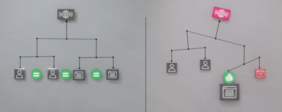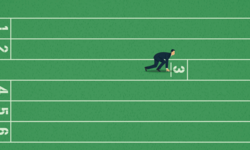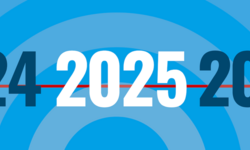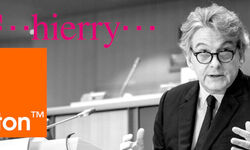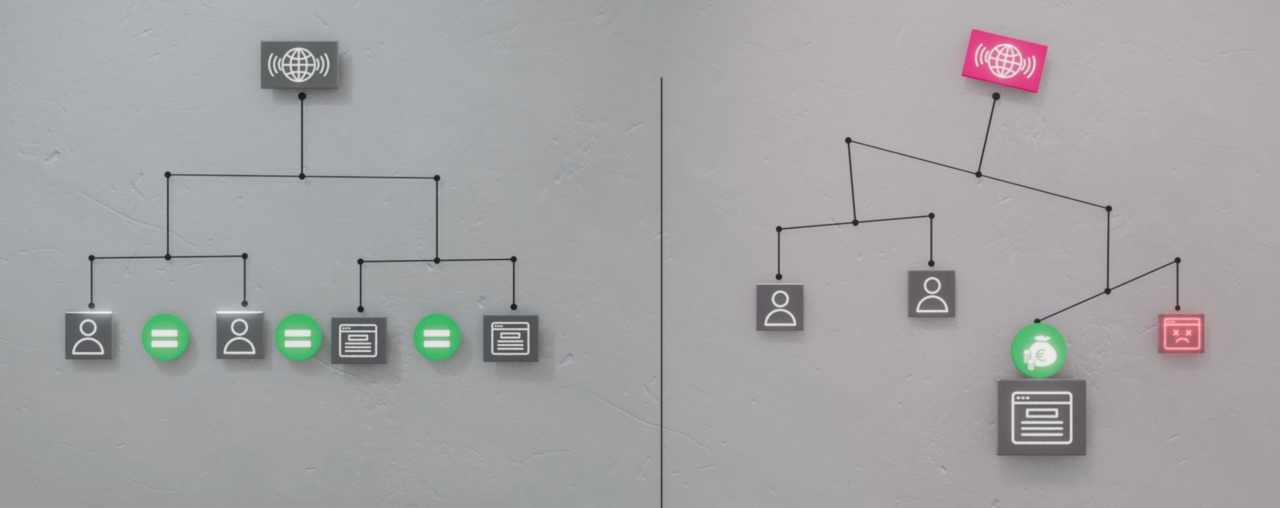
No Two-Tier Internet: Complaint Against Deutsche Telekom
No Two-Tier Internet: Complaint Against Deutsche Telekom
The coalition accuses Deutsche Telekom of creating artificial bottlenecks at the entrance to its network. Telekom deliberately exploits these bottlenecks to demand payment from online services for unrestricted access to Telekom customers.
The result is a two-tier internet: Deep-pocketed services that pay Telekom flow quickly into the Telekom network and function flawlessly. Smaller providers and startups that cannot or do not want to afford these payments are slowed down. Their services load slowly or not at all – they remain stuck in the data traffic jam at the entrance to Telekom’s network.
This also harms Telekom’s internet customers. The coalition has documented hundreds of complaints in which Telekom's business practices restrict its customers' freedom to use the apps and sites of their choice: certain websites and services load slowly or not at all, professional cloud services are only partially functional, e-learning videos and games stutter, and video calls repeatedly break off.
According to the complainants, Deutsche Telekom is violating Europe’s net neutrality law in two ways: Telekom violates the law’s ban on paid fast lanes and the right of end users to use the content and services of their choice via their internet access service.
Telekom is the only provider in Germany that deliberately exploits these bottlenecks at the entrance to its network. Other internet providers in Germany expand the doors into their networks when bottlenecks occur, without charging fees.
With this complaint, the coalition is calling on the Bundesnetzagentur to investigate Deutsche Telekom's business practices and put a stop to them.
Read the complaint incl. attachments
Thomas Lohninger, epicenter.works: "Telekom is the only internet provider in Germany that artificially restricts the connections between its network and the rest of the internet in order to maximize its profits. The prices Telekom demands for interconnection are several times higher than the market price, because the standard is to interconnect for free. Apps that don't pay suffer from bad performance. The main victims are Telekom customers and online services. Thousands of complaints about this problem can be found online. Preventing these paid fast lanes is central to net neutrality, and it’s the Bundesnetzagentur’s duty to take decisive action.”
Lina Ehrig, Head of Digital and Media Team at vzbv: "When movies on streaming platforms stutter, websites load slowly or cannot be accessed at all, consumers often don’t understand what’s causing these issues. Most people wouldn’t suspect that their own internet provider deliberately creates these problems to make money. But Deutsche Telekom's business practices create artificial bottlenecks at the access points to its network. This restricts consumer choice. The Bundesnetzagentur should ensure that Telekom complies with net neutrality and prohibit this practice."
Prof. Dr. Barbara van Schewick, Law Professor & Director, Center for Internet and Society, Stanford University: "Deutsche Telekom's practices are a frontal attack on the open internet. Telekom creates artificial bottlenecks at the entrance to its network and sells paid fast lanes which allow deep-pocketed services to bypass the data traffic jam. This particularly harms small businesses, startups, and non-profit organizations that cannot afford Telekom’s toll. This practice was banned in the US years ago. The Bundesnetzagentur must act now: Telekom customers have a right to use the entire internet without restrictions – after all, that's what they're paying for."
Jürgen Bering, Head of the Centre for User Rights at GFF: "We are seeing more and more attempts by large companies to use their financial power to buy larger audiences. Large platforms exploit their dominance to amplify certain opinions and suppress others. If net neutrality crumbles, those same companies will be able to buy better access to people for their internet offerings. This must be prevented.”
Double Dipping: Customers and Online Services Pay
Unlike all other German internet providers, Telekom wants to be paid twice: once by its own customers, and again by the online services these customers use. Websites only work quickly and reliably on Telekom’s network if both customers and online services pay.
Thus, Telekom customers do not receive what they are paying for: unrestricted, non-discriminatory access to the entire internet.
Net Neutrality as the Foundation of Digital Civil Rights
Net neutrality is of critical importance in a free society. Only if all content is equally accessible, regardless of its origin or the provider’s financial strength, can users truly exercise their freedom of information and expression on the internet. An infringement of net neutrality like Deutsche Telekom’s leads to fewer websites and online services, less competition, higher costs, and less innovation in the long term. When the accessibility of content depends on whether the providers pay the internet provider, companies’ financial strength determines which content and services can actually be used. This violates consumer rights, net neutrality, and endangers free, democratic discourse online.
Regulatory Tailwind for the Complaint
The complaint is based on Europe’s net neutrality law, which is directly applicable in Germany.
In December 2024, after a two-year investigation, Europe’s top telecom regulator BEREC published a report describing practices in which an internet provider exploits bottlenecks at the entrance to its network to demand payments from online services for unhindered access to its customers. The report classified such practices as potential violations of Europe’s net neutrality law. Although the report did not directly name companies, it listed several examples, most of which involved Deutsche Telekom.
Simultaneously, in December 2024, the Swiss telecom regulator ComCom clearly rejected the double-dipping model: according to that decision, an internet provider is not allowed to charge companies delivering data requested by its customers.
These recent regulatory decisions support both the factual allegations and the legal position of the complainants.
The coalition expects a swift decision from the Bundesnetzagentur that will finally help German internet customers achieve full freedom of choice. The agency must guarantee confidentiality to affected providers.
For more information visit netzbremse.de
Since you're here
… we have a small favour to ask. For articles like this, we analyse legal texts, assess official documents and read T&Cs (really!). We make sure that as many people as possible concern themselves with complicated legal and technical content and understand the enormous effects it has on their lives. We do this with the firm conviction that together we are stronger than all lobbyists, powerful decision makers and corporations. For all of this we need your support. Help us be a strong voice for civil society!
Become a supporter now!
